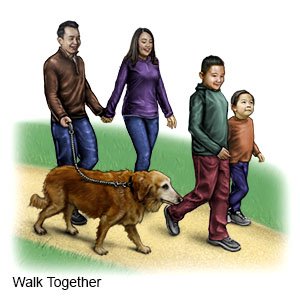Acute Delirium
Medically reviewed by Drugs.com. Last updated on Apr 6, 2025.
What is acute delirium?
Acute delirium is temporary confusion and change in consciousness. Consciousness is how alert and aware of your surroundings you are. You may have trouble remembering, listening, or doing things you usually do.
What causes or increases my risk for acute delirium?
- Age older than 70 years
- Use of 5 or more medicines at the same time
- Illness or injury
- Lack of sleep
- Drug or alcohol use disorder, or suddenly stopping after long-term use
- Chemicals such as smoke or fumes
- A medical condition such as a stroke or heart attack that stops blood flow to your brain
- Medicines such as anesthesia, opioids (narcotics), or tranquilizers
- Surgery, especially in elderly people
- Dehydration, or nutrition problems
- Kidney, liver, or other organ disease
- Use of a medical device such as a catheter to help you urinate
What are the signs and symptoms of acute delirium?
Your symptoms may come and go quickly. You may feel better at times and worse at other times. You or someone close to you may notice any of the following:
- Fast mood changes, being easily angered, restless, or excited
- Confusion, such as where you are or what day it is
- Memory problems, such as forgetting who someone is or things that have just been said
- False beliefs about yourself and the area around you (delusions)
- Hearing, seeing, smelling, or feeling things that are not real (hallucinations)
- Trouble paying attention, talking, and thinking
- Feeling lazy or sleepy, or trouble staying asleep through the night
- Not caring about what happens around you, or not wanting to eat
- Slow to think, move, or respond to people
How is acute delirium diagnosed?
Healthcare providers will ask when symptoms started. They will need to know about any recent accident, head injury, or surgery. Tell them about all current and recent medicines, and any drug or alcohol use. Also tell them about chemical exposure at work or home.
Drugs used to treat this and similar conditions
How is acute delirium treated?
If a medical condition is causing your delirium, your healthcare provider will treat the condition first. He or she may make changes to your current medicines. You may also need any of the following:
- Extra liquid may be given if you are dehydrated. The liquid may contain sodium or other chemicals if you have an electrolyte imbalance. You may be given liquid nutrition if needed.
- Antipsychotics help you stop seeing or hearing things that are not real.
- Benzodiazepines are used if your delirium occurs after you suddenly stop using drugs or drinking alcohol.
Treatment options
The following list of medications are related to or used in the treatment of this condition.
How can I manage or prevent acute delirium?
- Talk to counselors. Healthcare providers will work with you to help you feel calm and talk about your thoughts and feelings. They will help you remember where you are. They will work to keep you and those around you safe.
- Talk to family and friends. Talk to those around you when you feel lonely or sad. Ask for help when you forget the time, place, or names of people around you.
- Change your surroundings. Keep your home or room quiet and comfortable. Surround yourself with familiar objects. Keep a calendar and clock nearby to remind you of the date and time. Keep pictures of your family and friends nearby. This will help you stay aware of yourself and the area around you. It may also help you feel safe and calm.
- Take all of your medicines as directed. This will help prevent delirium caused by medicines.
- Write daily schedules and routines. Record medical appointments, times to take your medicines, meal times, or any other things to remember. Write down reminders to use the bathroom if you have trouble remembering.
- Eat healthy foods. Healthy foods will help prevent nutrition problems. Examples are fruits, vegetables, whole-grain breads, low-fat dairy products, beans, lean meats, and fish. Ask if you need to be on a special diet. Your healthcare provider may also recommend vitamins or other supplements if needed. Do not take anything without talking to your provider first.

- Drink liquids as directed. Liquids will help prevent dehydration and constipation.
- Exercise as directed. Exercise such as walking can help improve your mood and ability to think clearly. Exercise can also help you sleep more easily. Your healthcare provider can help you create a safe exercise plan.

Call your local emergency number (911 in the US) if:
- You want to harm yourself or others.
When should I seek immediate care?
- You cannot eat or drink, and you feel weak or dizzy.
When should I call my doctor?
- You have new or worsening trouble remembering.
- You have new or worsening trouble sleeping.
- You have questions or concerns about your condition or care.
Care Agreement
You have the right to help plan your care. Learn about your health condition and how it may be treated. Discuss treatment options with your healthcare providers to decide what care you want to receive. You always have the right to refuse treatment. The above information is an educational aid only. It is not intended as medical advice for individual conditions or treatments. Talk to your doctor, nurse or pharmacist before following any medical regimen to see if it is safe and effective for you.© Copyright Merative 2025 Information is for End User's use only and may not be sold, redistributed or otherwise used for commercial purposes.
Learn more about Acute Delirium
Treatment options
Care guides
Further information
Always consult your healthcare provider to ensure the information displayed on this page applies to your personal circumstances.
